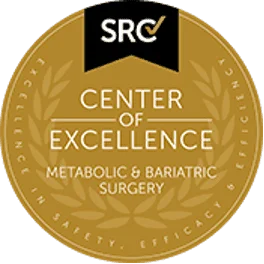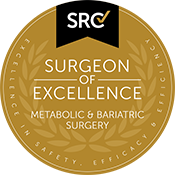Starting a new diet is never easy. If you’re following a meal plan, you may need to update your shopping lists, set aside time to cook new recipes and get used to trying unfamiliar foods. It can require quite a bit of thought and effort.
Perhaps that’s why there’s a growing interest in meal replacement shakes. Walk into any big pharmacy or supermarket, and you’ll probably see at least one aisle filled with them. They’re often aggressively marketed as an easy way to shed kilos and develop the svelte figure you’ve always wanted.
Like most things, though, meal replacement shakes have pros and cons. Let’s take a look.
What are meal replacement shakes?
As the name implies, a meal replacement shake is a drink that replaces a meal. Most shakes are designed to be:
- Low in calories
- High in protein
- Low in carbohydrate
- Supplemented with vitamins and minerals.
Some shakes are premixed and ready to drink. Others use milk or soy powders that you mix with milk or water before drinking.
Usually, people replace one or two meals a day with a shake. Their third meal of the day will be a regular one with normal nutritious food on the plate.
Benefits of meal replacement shakes
Many people use meal replacement shakes to lose weight. And it can work.
In 2018, researchers at Peking University conducted a 12-week study of 174 men and women who were overweight or obese. Half were asked to continue their normal diet. The others were asked to eat their normal breakfast and lunch and then have a meal replacement shake for dinner. This plan was seen as a mild change that would be easy to implement in real life (there’s a high attrition rate when people begin to replace more meals with shakes). By the end of the study, the ‘shake’ group showed a significant improvement in body composition and metabolic health.
A 2012 study followed 28 overweight and obese people using meal replacement shakes for two meals per day. By the end of the 12-week study, subjects reported significant improvements in physical function, general health, vitality and mental health, and reduced hunger.
Meal replacement shakes can be helpful if you:
- Only rely on them for a short time under the guidance of a doctor or dietitian (to ensure your nutritional needs are met).
- Need to lose some weight rapidly, such as before surgery.
- Want to know exactly how many calories you eat or carefully control your portions?
- You can’t eat a normal meal – you can sip a shake when you’re sick or have a long commute to work.
- Are time-poor – if you’re often grabbing fast food or takeaway, you may be better off with a nutritionally balanced, low-calorie shake.
Ideally, nutrition comes from a balanced diet. However, if your diet is poor, you may gain important nutrients from meal replacement shakes. They often include vitamins and minerals like calcium, potassium, iron and vitamin D.
Caution with meal replacement shakes
Meal replacement shakes are not a magic solution when it comes to weight loss. There are some other aspects that you need to consider.
Firstly, they’re not suitable for everyone. Don’t use meal replacement shakes if you’re:
- Pregnant
- Under 18
- Have an eating disorder
- Have underlying health conditions or are taking medication.
Always talk to your doctor first.
Meal replacement shakes are often made with milk powder or mixed with milk (for the protein) – this can be tricky if you’re lactose intolerant or allergic to dairy, though there are some plant-based options.
Secondly, the rest of your day also greatly affects your weight loss. If you replace breakfast and lunch with a shake, fill up on unhealthy snacks throughout the day, and finish with a big dinner, you’re unlikely to lose weight.
The same goes for your activity levels – if you don’t actively move much throughout the day, you may still consume more calories than you burn off. Thirdly, you can’t put off proper diet changes forever. Health professionals don’t recommend using meal replacement shakes for long. You will have to swap back to solid food at some point, meaning you need to learn how to prepare healthy, nutritious meals if you’re going to maintain your weight loss. You also need to set aside time to shop for ingredients and cook. If you’re unable to make these lifestyle changes, you’ll probably find that the kilos begin to creep back on.
That said, if you’ve managed to lose some weight with meal replacement shakes, you may feel more positive about your ability to make the next stage of changes to support your weight loss.
Lastly, despite their claims, you may need more nutrients from a meal replacement shake. Many different brands are on the market, and they’re not all equal. Look for ones that state ‘formulated meal replacement’ as these must meet nutritional requirements set by Food Standards Australia and New Zealand.
Our advice for slimming down
If you’re keen to improve your health and well-being, then you’re right to take your weight seriously. It significantly increases your risk of many serious conditions.
But most people struggle to lose weight. There are complex reasons for this, involving your lifestyle, mindset, genetics and body’s stubborn determination to maintain its current state.
It’s hard to achieve weight loss alone, so we encourage you to seek help – talk to your GP in the first instance. Dietitians, psychologists and exercise physiologists can help you identify and overcome some of the issues contributing to your weight. If you find that your weight persists despite all your efforts to shift it, then it may be time to consider bariatric surgery. You may also benefit from a referral to a specialist centre like St George Obesity Surgery.
Disclaimer
All information is general in nature and is not intended to be a substitute for professional medical advice. Any surgical or invasive procedure carries risks. St George Obesity Surgery can consult with you to confirm if this advice is right for you.
References
- Guo X, Xu Y, He H, Cai H, Zhang J, Li Y, Yan X, Zhang M, Zhang N, Maddela RL, Nicodemus-Johnson J, Ma G. Effects of a Meal Replacement on Body Composition and Metabolic Parameters among Subjects with Overweight or Obesity. J Obes. 2018 Dec 26;2018:2837367. doi: 10.1155/2018/2837367. PMID: 30687550; PMCID: PMC6327254, https://www.ncbi.nlm.nih.gov/pmc/articles/PMC6327254/, [Accessed 15 January 2024]
- Frestedt JL, Young LR, Bell M. Meal Replacement Beverage Twice a Day in Overweight and Obese Adults (MDRC2012-001). Curr Nutr Food Sci. 2012 Nov;8(4):320-329. doi: 10.2174/157340112803832156. PMID: 23236298; PMCID: PMC3514724. https://www.ncbi.nlm.nih.gov/pmc/articles/PMC3514724/, [Accessed 15 January 2024]
- LiveScience, Are meal replacement shakes healthy? https://www.livescience.com/are-meal-replacement-shakes-healthy, [Accessed 15 January 2024]
- ABC News, The science of weight loss shakes: How meal replacements work, https://www.abc.net.au/news/health/2018-05-10/meal-replacement-shakes-weight-loss-health/9742030, [Accessed 15 January 2024]
- Centers for Disease Control and Prevention, Health effects of overweight and obesity, https://www.cdc.gov/healthyweight/effects/index.html, [Accessed 15 January 2024]





